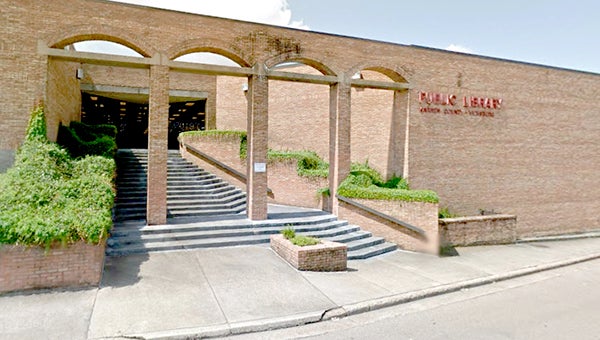Lifeguard supply does not meet demand
Published 8:56 pm Saturday, March 4, 2017
By Sylvia Gurtowski
For the past several years, Vicksburg and its surrounding areas have been facing a shortage of lifeguards at public, club and neighborhood swimming pools.
According to many in the business, the past two years, in particular, have been most challenging in regard to fully staffing aquatic facilities.
Vicksburg, although to a lesser degree, is following a nationwide trend in low interest in certification training which leads to low lifeguard employment rates.
Aquatic and recreation centers throughout the country are having difficulties hiring and retaining certified lifeguards. This, in turn, affects pool operations. Depending on lifeguard availability, many facilities, including some Vicksburg locations, have to implement a “Plan B” or “Plan C” strategy in order to serve their patrons with limited interruption in service.
Vicksburg City Pool looks to hire 25 to 30 lifeguards each summer to man its Olympic-size facility. Opening on Memorial Day, the pool is open weekdays from 6 a.m. until 8 p.m. and 1 to 5 p.m. on weekends and holidays. An optimum guard rotation would include nine to 12 lifeguards per shift.
However on most days, the facility can safely operate with a six to nine guard rotation. On days when only six guards are available per shift, management often limits the number of patrons allowed to swim. City pool is limited to 225 patrons for recreational swimming. If necessary, management will decrease that number to ensure the safety of all facility patrons.
If a lifeguard shift falls below six guards, management will close certain sections of the pool. This is used as a last resort, and a worst-case scenario for the facility, but, again, safety first for all patrons.
This is not a common practice, but due to the lifeguard shortage, this “Plan C” scenario was implemented on more than one occasion during Summer 2016.
The YMCA pools which include the indoor facility at Purks, Verbeck Branch outdoor seasonal pool, and the facilities at Warner Tully Camp, follow similar guidelines when lifeguards are short or, in some cases, unavailable. If there are no lifeguards, the pool closes. According to Wayne Scott who oversees aquatic operations at the YMCA, even the much loved and used hot tub has to close if there is no lifeguard on duty. In order for all three facilities to be fully operational, the YMCA requires 25 to 30 lifeguards during the summer months. In addition to the summer compliment of lifeguards, Purks’ indoor facility requires six to eight guards year-round.
Other facilities, such as the Vicksburg Country Club, Knights of Columbus, the Elks Lodge, and Marion Park face similar problems with their lifeguard staff. Each of these facilities employs from three to eight lifeguards.
There are several reasons for the shortage of lifeguards; some of which may prove surprising to many: In order to become a lifeguard, one must of course be a strong swimmer with knowledge of several swimming strokes.
The lifeguard candidate must be able to swim 300 yards continuously using these strokes. The candidate must also be able to tread water without the use of his arms for two minutes. There are also a few other strength tests a lifeguard candidate must complete. These are just the prerequisites to the American Red Cross Lifeguard Training Class.
After passing the prerequisites the lifeguard candidate must then participate in an intensive 30-hour course, which includes lifeguard skills and CPR for the Professional Rescuer. If skills are met satisfactorily the candidate must then pass two written tests with scores no lower than 80.
The cost of taking a lifeguard certification course varies, but in some cases the price can be as high at $350.
The lifeguard candidates, many of whom are high school or college students, are taking this course in addition to their already heavy laden workload.
Other commitments such as sports and school activities make it difficult for potential lifeguards to find time to take the course which requires at least 30 hours of in class training.
Other factors that contribute to low lifeguard numbers are:
4 Low pay (most facilities are now increasing the hourly rate for guards)
4 Stress of the job
4 Training and Recertification Involved
4 Cost of Recertification
4 Seeking Year-Round Employment
4 Seeking Jobs Within Chosen Field
The American Red Cross Lifeguarding course that is held in Vicksburg each year is priced at a more affordable rate: $150 for members and $175 for non-members. The instructors volunteer their time and the facility only charges a nominal user fee. Included in the fee are course materials, personal fanny packs, rescue masks and the American Red Cross Lifeguarding and CPR for the Professional Rescuer/AED certification. Prospective lifeguards must be 15 before the end of the class in order to be admitted.
In the Vicksburg community, lifeguard jobs are available and plentiful. One just needs the skills, time, dedication, commitment, maturity, and dedication that it takes to complete the requirements needed to be hired. Depending on interest, there are one or two lifeguard classes held in Vicksburg each year. Seven to 25 students are certified yearly.
With the community need of at least 60 guards per summer and the undependable returning lifeguard rate, the supply certainly does not meet the demand.
An American Red Cross Lifeguarding Class will be held March 27 through April 7 at the Purks YMCA from 6 to 8:45 p.m. Monday through Friday. Volunteer Instructors will be Bob and Susan Athow and Sylvia Gurtowski.
For more information on this class or other lifeguard questions contact the YMCA at 601-638-1071, or Vicksburg City Pool at 601-634-4516.





